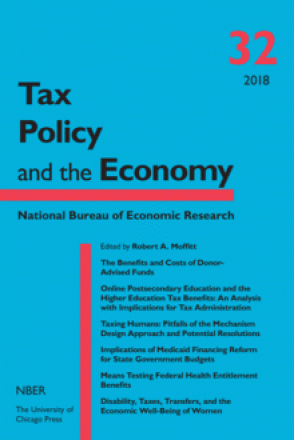Online Postsecondary Education and the Higher Education Tax Benefits: An Analysis with Implications for Tax Administration

You may be able to download this chapter for free via the Document Object Identifier.
Online postsecondary education is growing rapidly and increasingly dominates the use of the tax benefits for higher education: the American Opportunity Tax Credit, the Lifelong Learning Credit, and the Deduction for Tuition and Fees. Because online education does not closely resemble "brick-and-mortar" residential college education aimed at 18 to 23 year olds, it presents new challenges and opportunities for administering the tax benefits for higher education. In this paper, I combine tax data with administrative data from the U.S. Department of Education for cross-validation, to study compliance, and to gain understanding of how online schools and students use tax benefits for higher education. I also analyze take-up of the tax benefits and how they affect changes in earnings from before enrollment to after enrollment. The findings suggest several practical implications for the administration of the tax benefits, including form revisions, federal data coordination, and novel uses of earnings data to target compliance reviews.
-
-
Copy CitationCaroline M. Hoxby, Tax Policy and the Economy, Volume 32 (University of Chicago Press, 2018), chap. 2, https://www.nber.org/books-and-chapters/tax-policy-and-economy-volume-32/online-postsecondary-education-and-higher-education-tax-benefits-analysis-implications-tax.Download Citation


